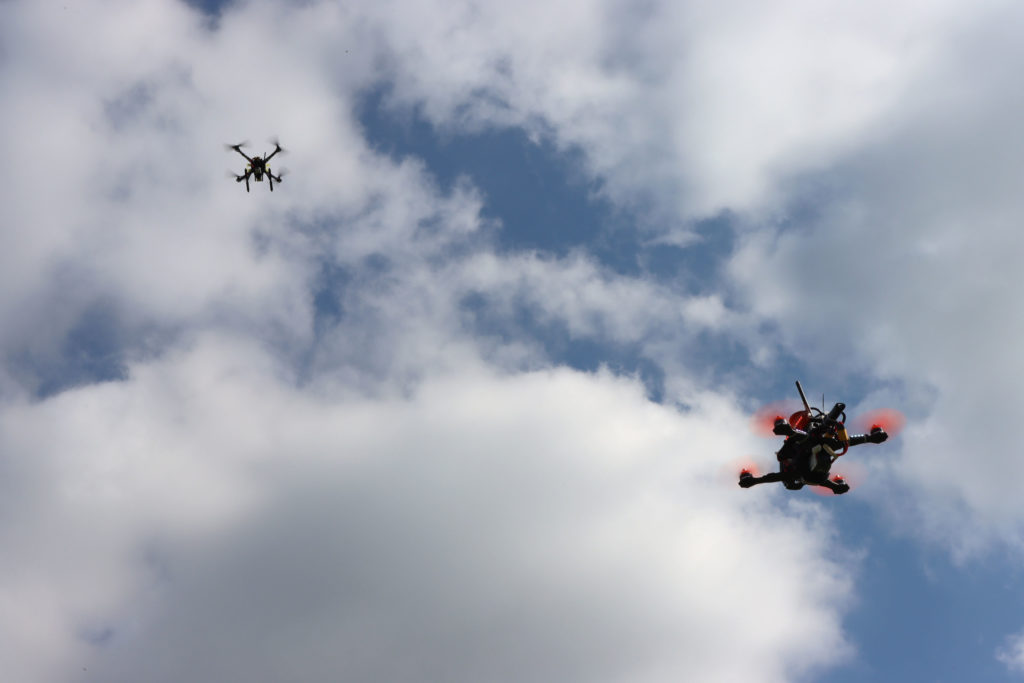Counter-UAS Demonstrator
The number of commercially available Unmanned Aerial Systems (UAS) is constantly increasing. In addition, there are powerful privately built devices, whose technical maturity is progressing over time. Therefore, an increase in both the lawful and unlawful use of such systems is being observed. UAS used carelessly or in a intentionally problematic manner could, for example, pose a threat to crowds at concerts and sporting events, key infrastructure such as airports, or other airspace users. Remote-controlled or autonomous operation means that it is often impossible to identify the target of a UAS or the responsible operator, so drastic measures such as broadband jamming, High-Power ElectroMagnetic (HPEM) interference, lasers or even live ammunition have been used to deactivate them in previous approaches. The use of such countermeasures, which in some cases can prove lethal, represents a danger for others and is therefore unsuitable in a civilian setting.
The Unmanned Aircraft Department at the DLR Institute of Flight Systems is conducting research into technologies to ensure protection against illegally operated drones. The research focuses on the detection and interception of the aggressor within the protected area, transport away from the scene and neutralisation using a counter-UAS – all without endangering bystanders. Ground-based solutions often have a short range and long response times, so the aggressor should be removed from the protection zone by a C-UAS. Depending on the mission scenario, this C-UAS may cause the aggressor to crash or capture it with a grappling system, secure it and transport it away.
As part of the project, scaled C-UAS were built as prototypes in order to investigate the necessary boundary conditions. The focus is on intercepting the intruder through airborne contact. The prototypes that have been developed are characterised by their high speed, agility and extraordinary resilience and robustness.
Link:
German Aerospace Center (DLR)
Institute of Flight Systems
Alexander Funke · Email Alexander.Funke@dlr.de
